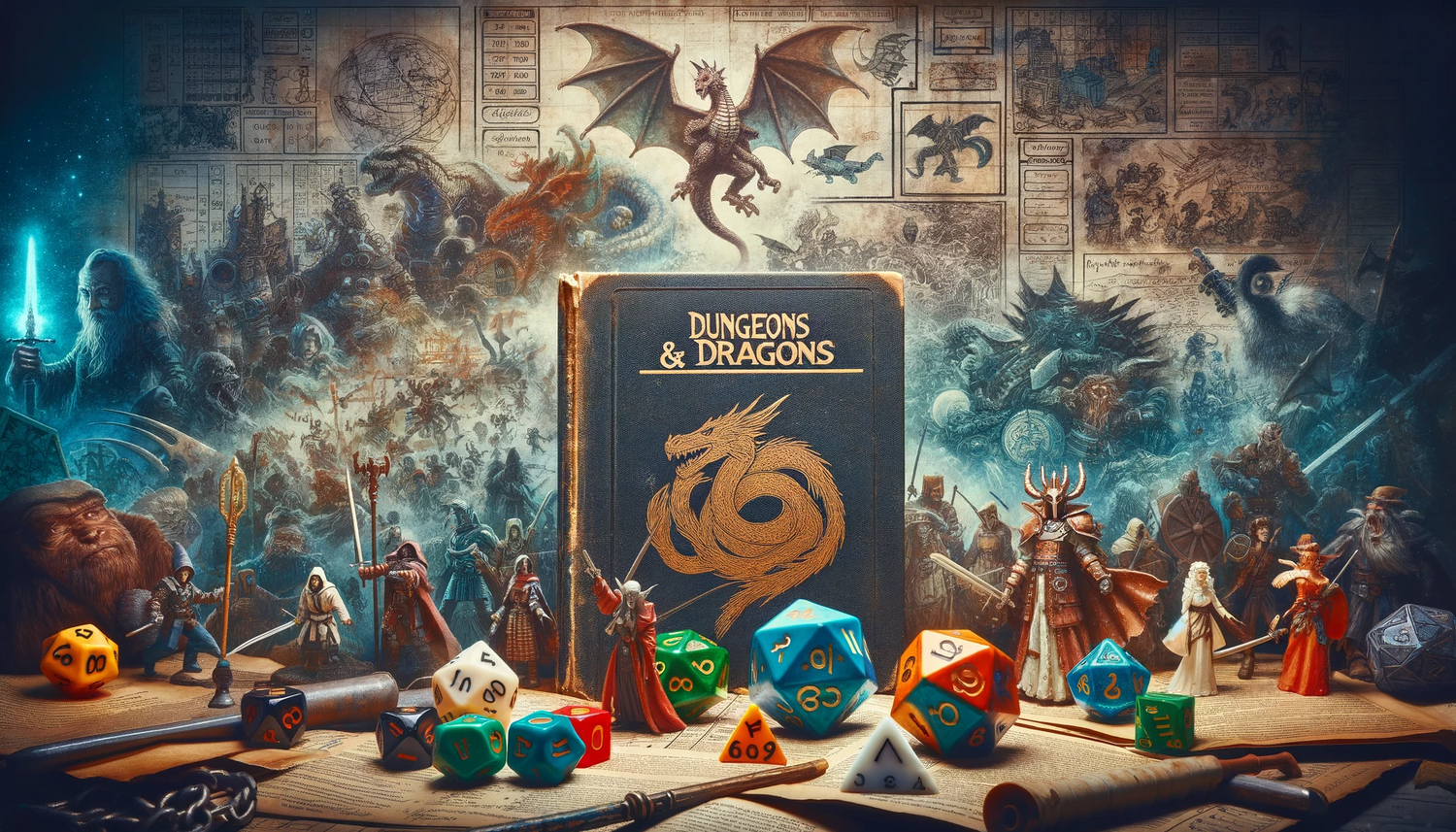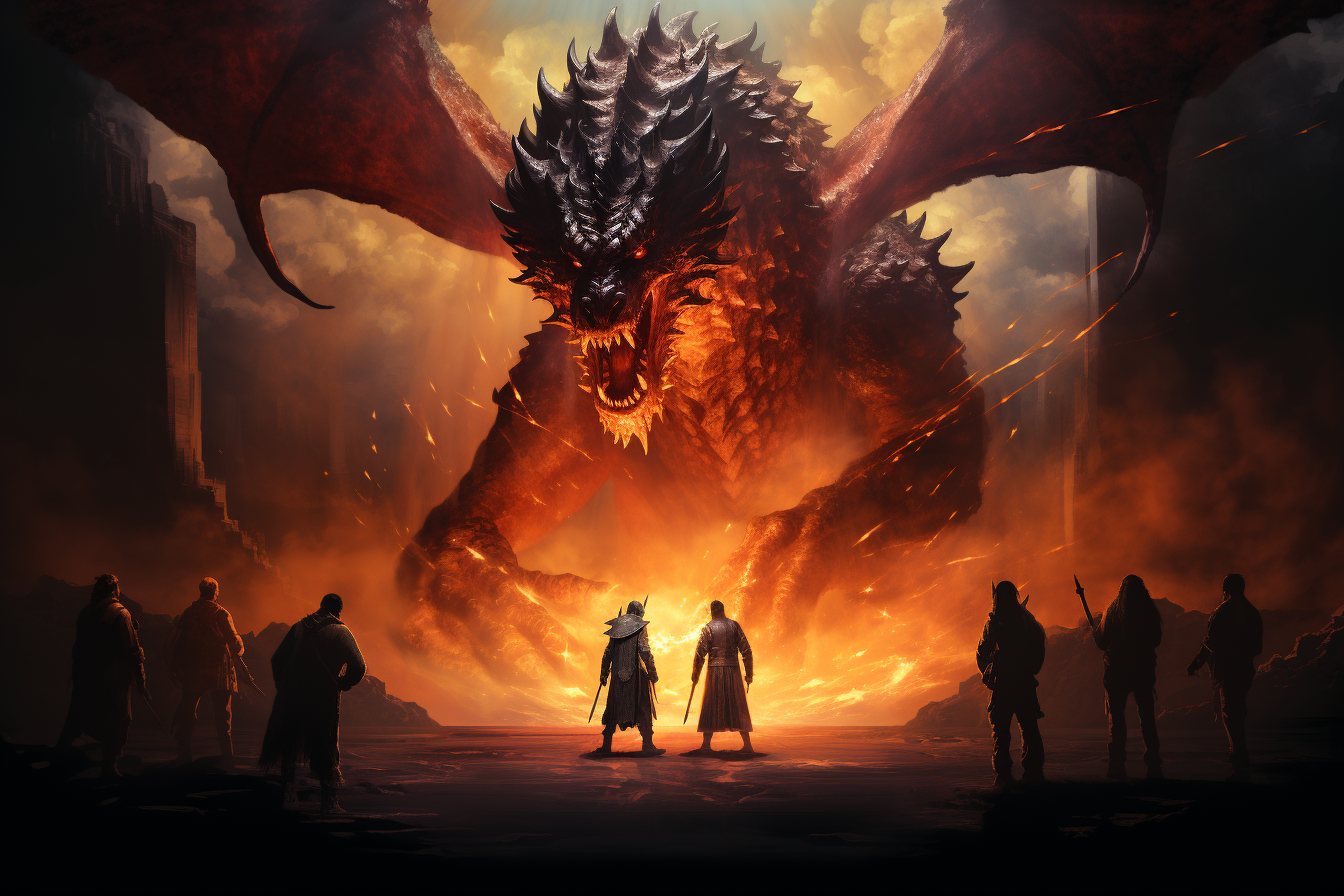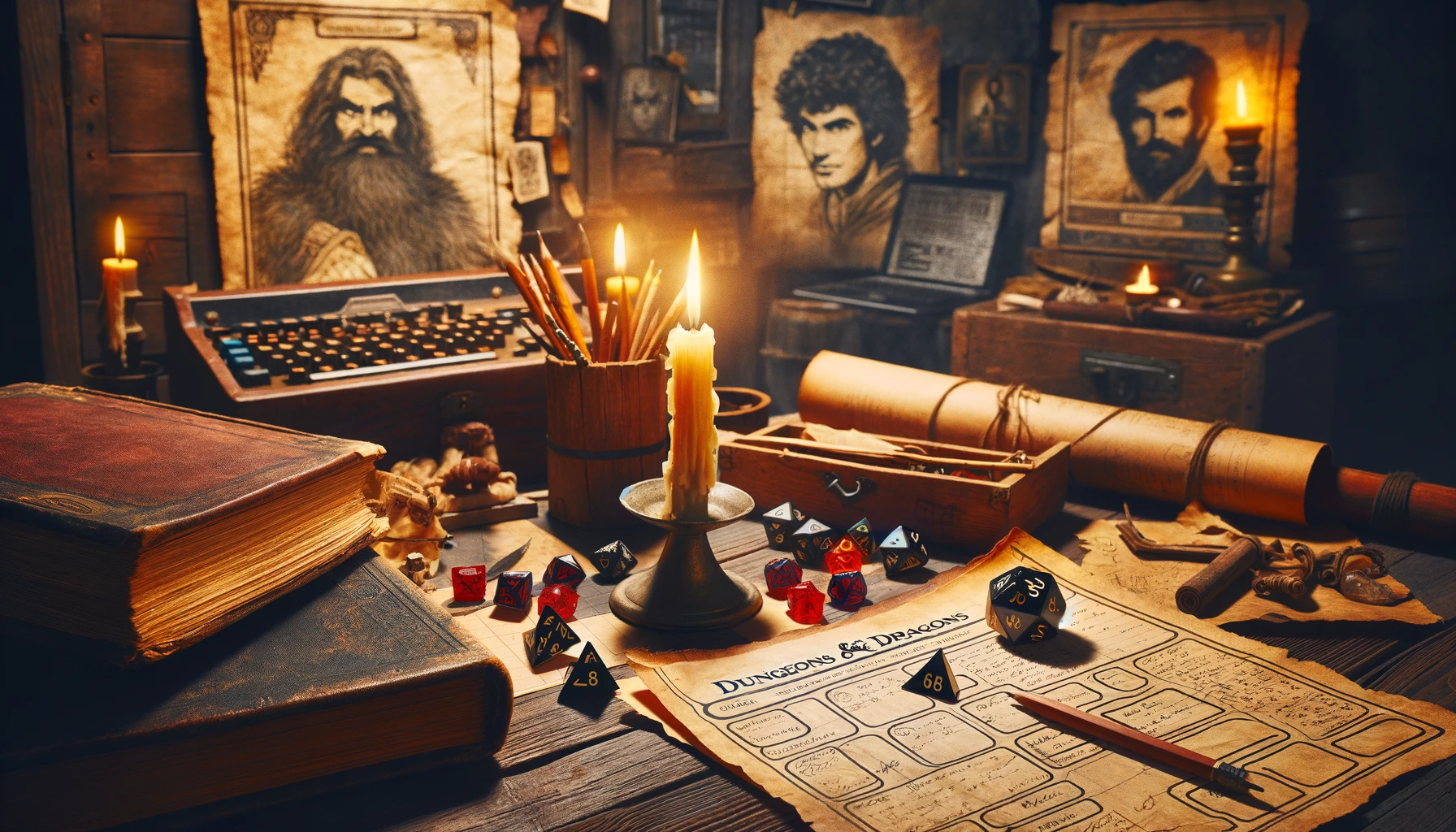Introduction: A Glimpse into the World of Dungeons & Dragons
Dungeons & Dragons, often abbreviated as D&D, isn't just a game; it's a cultural icon that has shaped the landscape of tabletop role-playing games since its inception in the 1970s. The game, known for its imaginative gameplay, complex rule systems, and rich fantasy settings, has not only stood the test of time
but has also evolved into a cornerstone of modern gaming culture. From its simple beginnings to its current status as a global phenomenon, the story of Dungeons & Dragons is as fascinating as the countless adventures it has inspired.
Origins and Inception: The Birth of a Legend
The history of Dungeons & Dragons begins with its creators, Gary Gygax and Dave Arneson. Their shared passion for war games and fantasy literature led to the creation of a game that combined elements of both. In the early 1970s, they experimented with rules and concepts, gradually laying the foundation for what would become D&D. This era was marked by a surge in interest in medieval and fantasy themes, providing the perfect backdrop for the birth of a new kind of game.
Read more about the Origin of D&D here
The 1970s: The First Quest Begins
D&D officially made its debut in 1974, quickly capturing the imagination of players who were eager for a new form of entertainment. The game's unique blend of storytelling, strategy, and chance was revolutionary. Players were drawn to the freedom it offered, allowing them to create characters and embark on adventures limited only by their imagination. The basic game mechanics, including character classes, leveling up, and dice-based outcomes, were established during this period, setting the standard for future role-playing games.
Learn more about the early release of Dungeons & Dragons here
Expanding the Realm in the 1980s: A Growing Phenomenon
The 1980s saw D&D rise from a niche hobby to a cultural phenomenon. The game's popularity soared, leading to the release of numerous expansions and editions. These new releases introduced more complex rules, diverse character options, and richer world-building, catering to an ever-growing fan base. This period also saw the game branching out into other media, including novels and a Saturday morning cartoon, further cementing its place in popular culture.
Controversies and Challenges: Facing the Backlash
Despite its success, D&D faced significant challenges in the 1980s. The game became the subject of controversy, with some groups criticizing it for allegedly promoting occult themes and violent behavior. These accusations, fueled by moral panic and media sensationalism, led to public debates and legal challenges. However, these controversies also brought the game into the public eye, inadvertently increasing its popularity.
Read our full post on the controversies and challenges D&D has faced here
1990s: D&D in the Digital Age: Adapting to Change
The 1990s brought new challenges and opportunities for D&D. The advent of video games and the internet began to change the landscape of gaming. D&D responded by embracing these new technologies, leading to the creation of video game adaptations and online platforms that allowed players to connect from afar. This era also saw the release of new editions, which streamlined the game's rules and expanded its lore, making it more accessible to a new generation of players.
New Millennium, New Horizons: Broadening the Appeal
In the 2000s, D&D continued to evolve, reaching out to an even broader audience. The game's mechanics and storytelling were further refined, making it more inclusive and appealing to a diverse group of players. This period also witnessed a surge in the popularity of fantasy literature and films, such as "The Lord of the Rings," which renewed interest in D&D and introduced it to a new generation of fans.
The Renaissance of Role-Playing: A Modern Revival
The 2010s marked a renaissance for D&D, driven by the rise of streaming platforms and online communities. Shows like "Critical Role" and podcasts dedicated to D&D gameplay attracted massive followings, showcasing the game's potential for storytelling and community building. This era saw a resurgence in the game's popularity, with new players drawn in by the appeal of collaborative storytelling and imaginative play.
Read the full post on the Revival of D&D here
Game Mechanics Through the Years: Evolving for Engagement
Over the years, D&D's game mechanics have undergone significant
changes, adapting to the needs and preferences of its evolving player base. From the simplicity of the early editions to the more complex and nuanced rules of later versions, each iteration of D&D has sought to improve player experience. The evolution of these mechanics reflects the game's commitment to balance, creativity, and strategic thinking, ensuring that each session is both challenging and rewarding.
D&D and the Fantasy Genre: Inspiring a World of Stories
Dungeons & Dragons has had a profound impact on the fantasy genre, influencing countless authors, filmmakers, and game designers. The game's rich lore and imaginative settings have served as a blueprint for many fantasy narratives. Its emphasis on storytelling and character development has also inspired players to explore their own creative potential, leading to the creation of original works of fiction and art.
Art and Illustrations in D&D: Visualizing the Fantasy
The art and illustrations of Dungeons & Dragons have been instrumental in bringing the game's fantastical worlds to life. From early hand-drawn maps and character sketches to the detailed and vibrant artwork of later editions, the visual elements of D&D have continually evolved. Iconic artists have contributed to the game's aesthetic, creating images that have become synonymous with the fantasy genre.
Famous Campaigns and Adventures: Legendary Tales
Throughout its history, D&D has produced numerous campaigns and adventures that have become legendary among players. These storylines, ranging from epic quests to intricate mysteries, have set the standard for role-playing adventures. They have not only provided endless hours of entertainment but have also influenced the development of the game, introducing new settings, characters, and challenges.
Read about some of the famous campaigns here
D&D's Role in Social Development: Beyond the Game
Dungeons & Dragons has played a significant role in the social development of its players. The game encourages teamwork, problem-solving, and creative thinking, skills that are valuable both in and out of the gaming context. It also fosters a sense of community and inclusivity, providing a space where players of diverse backgrounds can come together and share in a collective experience.
Celebrity Influence and Mainstream Acceptance: Into the Spotlight
The endorsement of Dungeons & Dragons by celebrities and public figures has played a significant role in its mainstream acceptance. Famous fans of the game have helped to dispel misconceptions and highlight the positive aspects of role-playing. Their involvement has also drawn attention to D&D, introducing it to a wider audience and further solidifying its place in popular culture.
Merchandising and Product Expansion: Beyond the Tabletop
The merchandising and product expansion of D&D reflect its broad appeal. The game has extended its reach beyond the tabletop, inspiring a range of products including board games, miniatures, apparel, and more. These products not only cater to the game's fan base but also introduce the D&D brand to new audiences.
The Future of Dungeons & Dragons: Charting New Territories
As we look to the future of Dungeons & Dragons, it's clear that the game will continue to evolve and inspire. Upcoming editions and projects promise to expand the D&D universe, exploring new stories and gameplay possibilities. The game's enduring popularity and ability to adapt to changing trends suggest a bright future, filled with endless adventures and new generations of players.
Conclusion: The Enduring Legacy of Dungeons & Dragons
The history of Dungeons & Dragons is a testament to the game's enduring appeal and its ability to adapt to the changing landscape of gaming and popular culture. From its humble beginnings to its current status as a beloved global phenomenon, D&D has left an indelible mark on the world of entertainment. Its legacy is not just in the games it has inspired or the communities it has built, but in the countless stories it has sparked in the imaginations of its players. As D&D continues to evolve, its journey is far from over, promising new adventures and experiences for generations to come.



